|
Ms. Nguyen Tuyet Hanh, representative of the Hanoi Autistic Family Club, participated and contributed ideas at the International Scientific Conference “Improving the quality of inclusive education and towards sustainable education for children with disabilities in Vietnam” held at Hanoi National University of Education. (Photo: provided by the character) |
Accompanying autistic families to reduce hardship
With over 29 years of accompanying autistic children and over 20 years of social activities in the field of autism, Ms. Hanh understands the difficulties, hardships, obstacles, and problems of autistic children and their families on the path to integration. She has never been discouraged by the fact that her child has autism because no matter what happens to her child, a mother's love for her child will never change.
29 years ago, when her daughter was only 3 months old, with her motherly instinct, Ms. Hanh felt that her child was unusual. She did not like to be hugged, often cried and struggled every time she was held and pampered. Only when she was put on the bed and left alone would the baby stop crying. Later, she understood that these were the first unusual signs of autism. When her child was 2 years old, many different signs appeared compared to her peers such as: liking to play alone, often getting angry for no reason...
At that time, there was not much information about autism in Vietnam, not even a single medical document about this disease, so Ms. Hanh and her husband were extremely confused. There were sleepless nights, Ms. Hanh looked at her child and cried.
In 2000, after taking her child to the hospital for a check-up, she learned that her child had autism spectrum disorder - a lifelong developmental disability that causes behavioral, language and communication deficits.
At first, when she learned that her daughter had an incurable disease, she was shocked and did not understand why her child was like that. Immersed in suffering and unhappiness, she overcame everything and regained her spirit, accepting her child as a "different child" to accompany her child. In the process of raising and intervening with her child, through personal relationships, she "learned" from the experiences of those who went before her, explored and learned special education methods, spent time and effort to find specific ways to teach her child, suitable for her child...
|
The photo is displayed at the Photo Exhibition of 20 years of establishment and development of the Hanoi Autistic Family Club. (Photo: Provided by the character) |
Based on the wishes and needs of families with autistic children in Hanoi and neighboring provinces, in October 2002, with the support of Ms. Nguyen Thi Hoang Yen (now Professor, Doctor, Distinguished Teacher), who was then Head of the Department of Special Education - Hanoi Pedagogical University, Ms. Hanh and a number of parents with autistic children founded the Hanoi Autistic Children's Family Club (now the Hanoi Autistic Families Club), the predecessor of the Vietnam Autism Network. The Club had about 40 members at that time, mainly parents with autistic children and a number of teachers who teach autistic children. To date, the Club has had thousands of autistic people and their families participating in its activities.
The club was established for parents of autistic children to meet and support each other, learn and share knowledge about autism; raise social awareness of autism, reduce stigma, and help with early detection for intervention. timely as well as raising social concern and responsibility for autism...
To make the journey of accompanying autistic people less arduous, the Club has translated many pages of foreign documents on autism; organized discussions on issues that families encounter in the process of caring for autistic people; organized training sessions, biomedical therapy, psychological therapy, and nutrition for autistic children so that families have the opportunity to learn and interact with experts from within and outside the country.
At the same time, in order to raise awareness in the community, in response to World Autism Awareness Day, the Club organized 2 walks for children named "Helping autistic children to be aware of community integration", "Acting together about autistic children" in Hanoi with the participation of thousands of people.
Next, as a private playground for autistic people and their families, the Club regularly organizes sports and cultural events... In particular, in November 2020, for the first time, the Club organized the first "Introducing career-oriented products for autistic people" fair with many handmade handicrafts, food, cakes, dried fruits, pre-processed vegetables and fruits... for sale. It is expected that this April, the "Introducing products produced by autistic people" fair will continue to be held after 4 years of interruption due to the Covid-19 pandemic.
|
The Hanoi Autistic Family Club organized a free training course on “Application of speech therapy in speech and language development for children with special needs” for teachers in the field of caring for and raising autistic children and parents in many provinces and cities. (Photo: Club provided ) |
The Inspiring Journey of a Great Mother
Recalling the arduous journey of taking care of her daughter, Ms. Hanh shared: If raising a normal child is one difficult task, taking care of an autistic child must be 10 times more difficult. At the age of 5.5, her child had just learned language, so she had to spend many months teaching her to speak and call everyone in the house by name, teaching her to answer yes or no questions, and then being extremely patient to teach her to use the toilet properly or brush her teeth and wash her face. Just like that, she and her relatives had to persistently teach her child every day, over and over again.
Her efforts to support her child's integration into the community also encountered many difficulties and obstacles. When her child was in primary school, for many reasons (including discrimination), she was forced to transfer her child's school about 10 times. When her child reached puberty, because she was worried that her child would not be able to protect himself and was at risk of sexual abuse, she had to make the agonizing decision to transfer her child from an inclusive educational environment to a specialized educational environment.
|
Workshops and experience exchanges between autistic people and society to share a common view on autism. (Photo: Club provided) |
To become an optimistic and courageous person, inspiring and helping many parents with autistic children like now, Ms. Hanh also went through emotional "breakdowns".
“There were times when, when I think back, not only me but also the whole generation of parents with autistic children at that time were emotionally “broken”, because at that time, everyone had aspirations and wishes, but when having an autistic child, it was like having to put everything aside, difficulties piled on difficulties. At that time, I felt that there was no more chance to continue realizing those dreams, and then I was immersed in a very negative state” - Ms. Hanh confided.
However, according to Ms. Hanh, awareness is a process, when going through many challenges, hardships, even having no more tears to cry, then it gives you a very simple lesson, that is, you must soon accept your circumstances, your life, soon accept that your child has problems that need support. Acceptance here does not mean giving up, but accepting to find out if your child has any skills, or if there are things that can be saved, through that to teach your child.
She said: “From a teacher's question 'are you at peace, are you happy? If you are not happy, you do not have peace, then what do you have to give your child that?'. This statement completely touched her mind, made her change her life completely, because she was not happy, she was not at peace. From then on, she decided that she had to live happily, she rearranged her unfinished dreams, rearranged her plans to make that dream come true. Rearranging her life in a day must be bright patches, from those bright colors it creates a positive energy for her to work with her child in the most difficult times. Obviously, when she works with her child in a peaceful, loving mindset, her child develops" .
Ms. Hanh shared that autistic people are rarely at peace because they have sensory processing disorders, so when they go out into the world, autistic children are often in a state of restlessness, fear, and anxiety. Therefore, what Ms. Hanh wants is for her child to be at peace and happy. But to do this, she herself must be happy and have peace of mind. Because without these things, nothing can be done. From the lesson that happened to herself, it became a source of inspiration for her to pass on to other parents in the same situation.
“Raising and intervening for children is a long story in terms of cost, spirit and energy. That is why I always encourage and share my experience with parents to accept life with an autistic child early to stabilize their psychology, take time to rebuild their lives, from there rebuild the “lesson plan” to teach their children, and then have a long-term strategy to accompany their children throughout their lives,” Ms. Hanh confided.
Recalling the time she has gone through, Ms. Hanh said that the children who participated in the first Club are now all grown up, over 20 years old. When parents meet each other now, they only give each other smiles of encouragement, sharing and maturity in perception, accepting their children as "different children" after a long time of integration therapy with their children.
There needs to be a national program for people with autism.
Taking on the role of President of the Hanoi Autistic Family Club since 2015, up to now, in addition to the main activities of the Club, Ms. Hanh has identified the need for another area, which is policy consultation. According to her, only pursuing policies can bring long-term and sustainable benefits to autistic people. Therefore, the Club's Executive Board actively participates in seminars and policy consultations on people with disabilities in general and autistic people in particular... with the hope that the Government and ministries, departments and branches will coordinate so that autistic people can effectively integrate into social life, especially in education, health care, career guidance...
|
Ms. Nguyen Tuyet Hanh, representative of the Hanoi Autistic Family Club, participated and contributed her opinions at the "Consultation and consultation seminar on some main contents of the planning of the system of educational institutions for people with disabilities and the system of centers supporting the development of inclusive education in the period 2021-2030, with a vision to 2050" organized by the Ministry of Education and Training. (Photo: provided by the character) |
In recent years, the number of children with autism has been increasing, and through her own story and the stories of the members of the Club, Ms. Hanh always aspires to have a national program for autistic people, build specialized schools, support jobs to help autistic people integrate, support autistic people when they no longer have relatives...
According to her, if the State does not intervene early, does not have appropriate measures, and even does not have specific social policies, then in the future, social human resources will be very thin - both in quality and quantity.
To help families with autistic children have a support system, Ms. Hanh hopes that the State will have local or national vocational training schools that are suitable for the abilities of autistic people with the goal of helping autistic adults to participate in production and business activities within their capabilities to have an independent and meaningful life.
At the same time, the Government needs to play a leading role and encourage the contribution and socialization of human and material resources of the autistic family community in building Group Homes in localities to create opportunities for autistic people to live up to their abilities and feel useful and happy with the help of social workers and the community because autistic people have a level of understanding of autism and have the skills to work with autistic people.
“The club has been established for more than 22 years, the children who were only a few years old at that time are now over 20, of which the majority of autistic children aged 14 and above cannot continue to attend high school. What we worry about most is what will happen to our children when their parents get older. We really hope that the authorities at all levels will have more appropriate, comprehensive, and sustainable support in career guidance and vocational training for autistic people,” Ms. Hanh expressed.


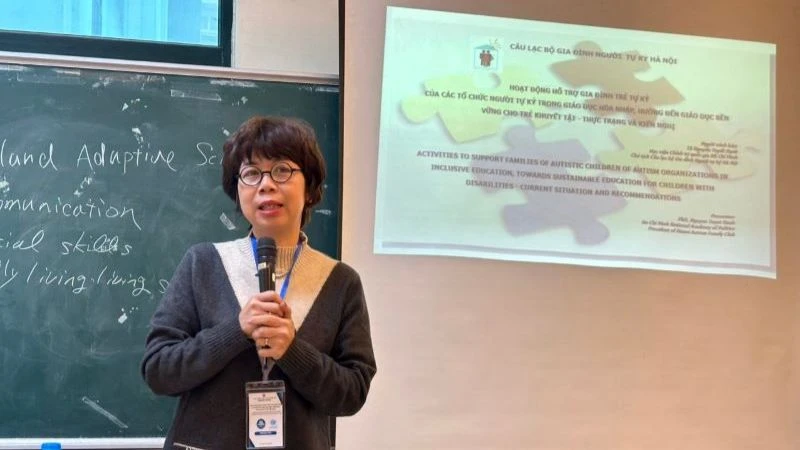
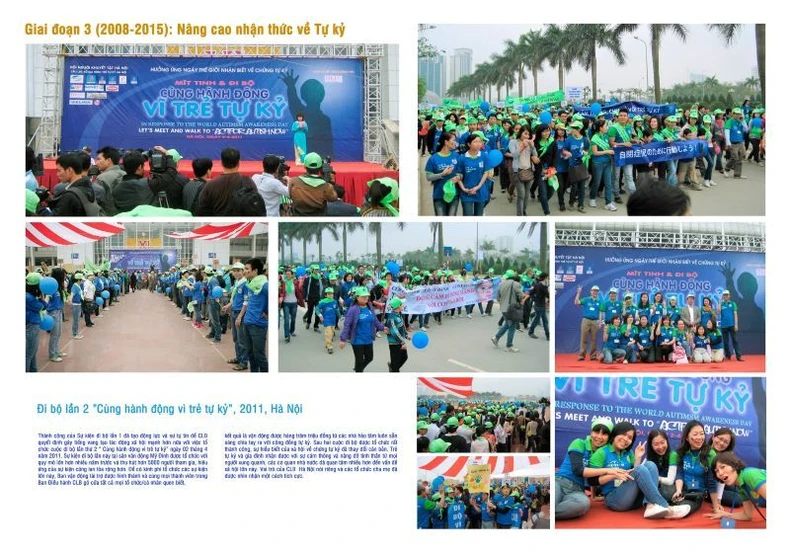
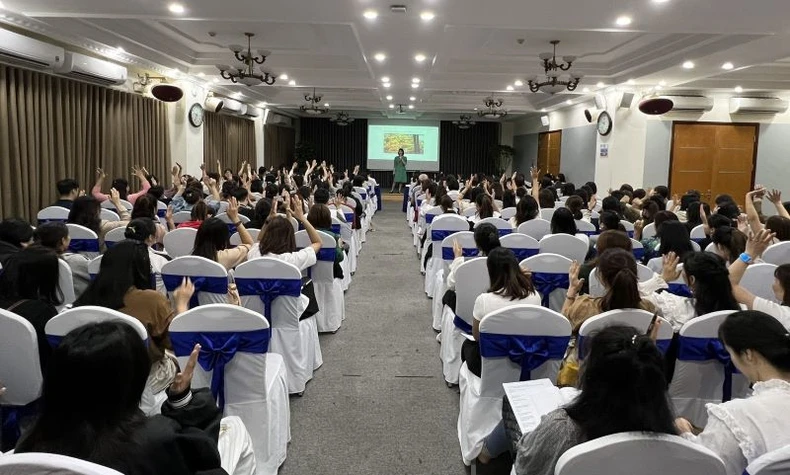
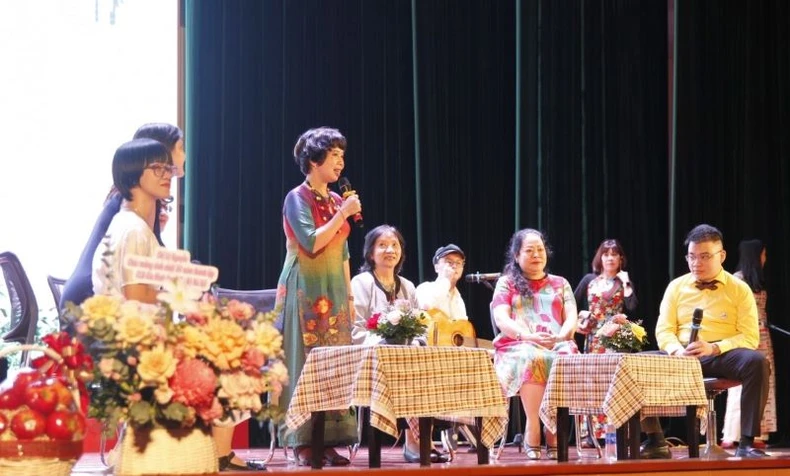
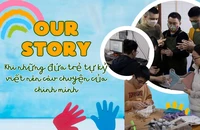
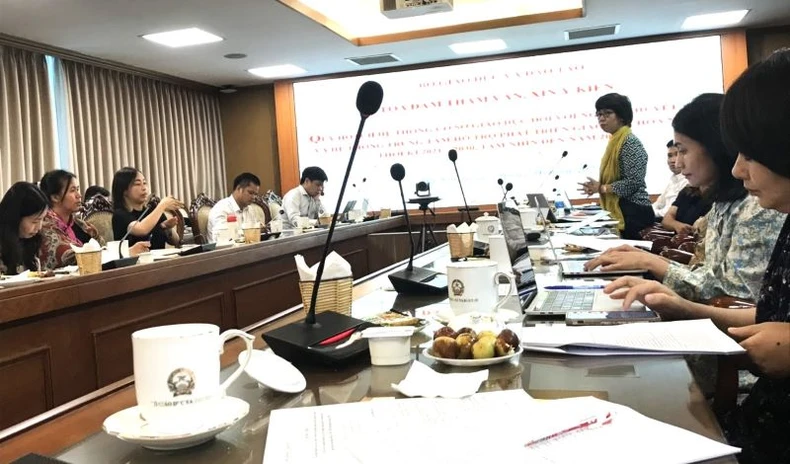





![[Photo] Close-up of An Phu underpass, which will open to traffic in June](https://vphoto.vietnam.vn/thumb/1200x675/vietnam/resource/IMAGE/2025/5/15/5adb08323ea7482fb64fa1bf55fed112)
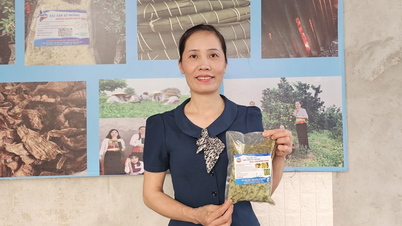

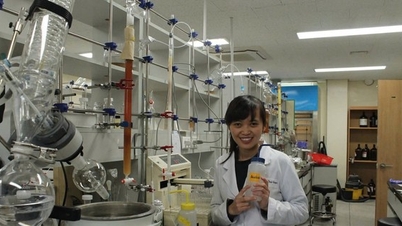

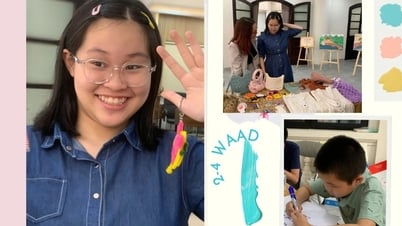












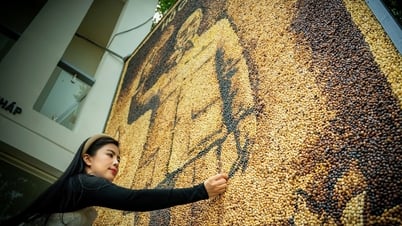

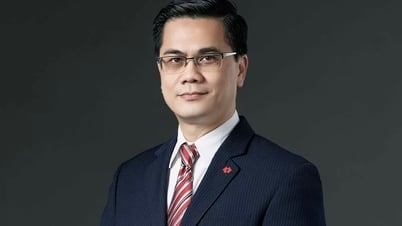








![[Photo] Close-up of An Phu underpass, which will open to traffic in June](https://vphoto.vietnam.vn/thumb/402x226/vietnam/resource/IMAGE/2025/5/15/5adb08323ea7482fb64fa1bf55fed112)
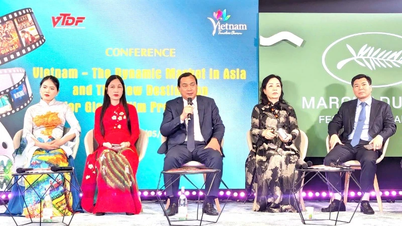
![[Video] Revocation of a series of health food registration certificates](https://vphoto.vietnam.vn/thumb/402x226/vietnam/resource/IMAGE/2025/5/15/83b32adc50da41279899f8c42ff453e0)



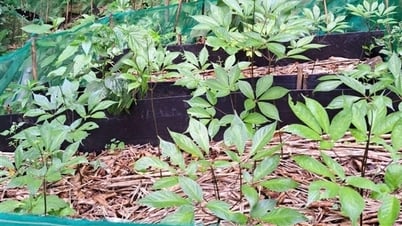



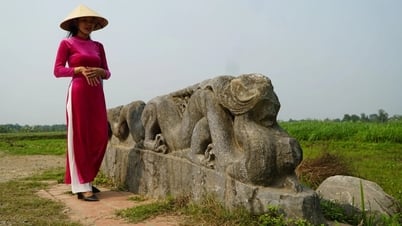














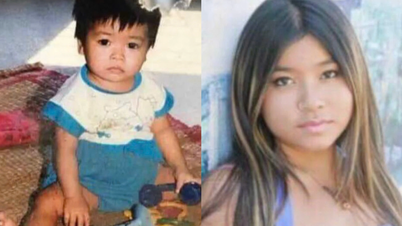



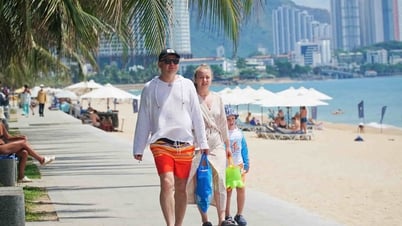



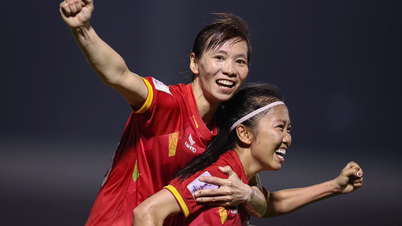


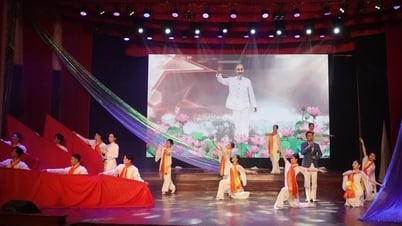
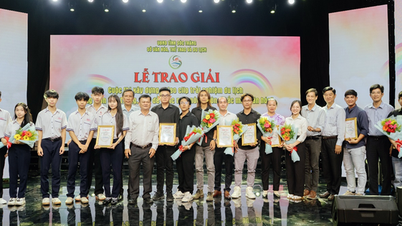
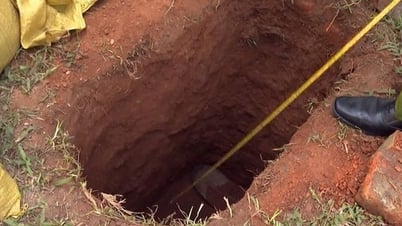

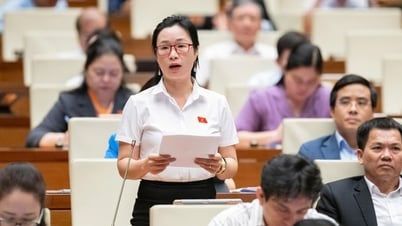


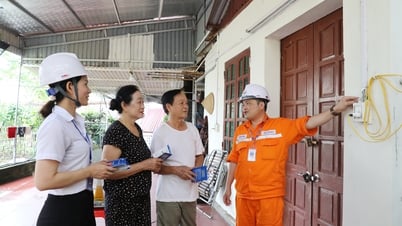



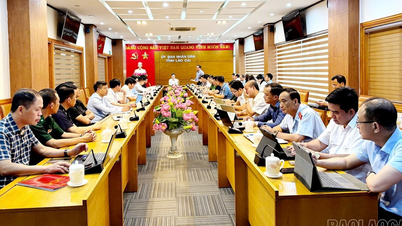
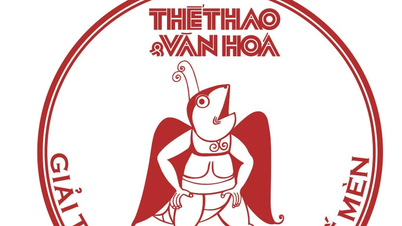












Comment (0)